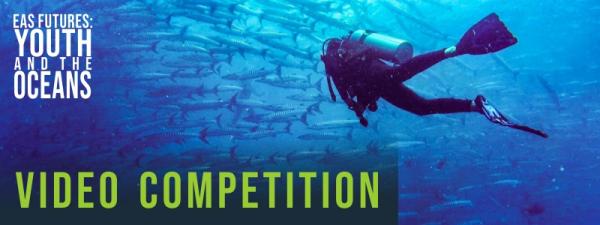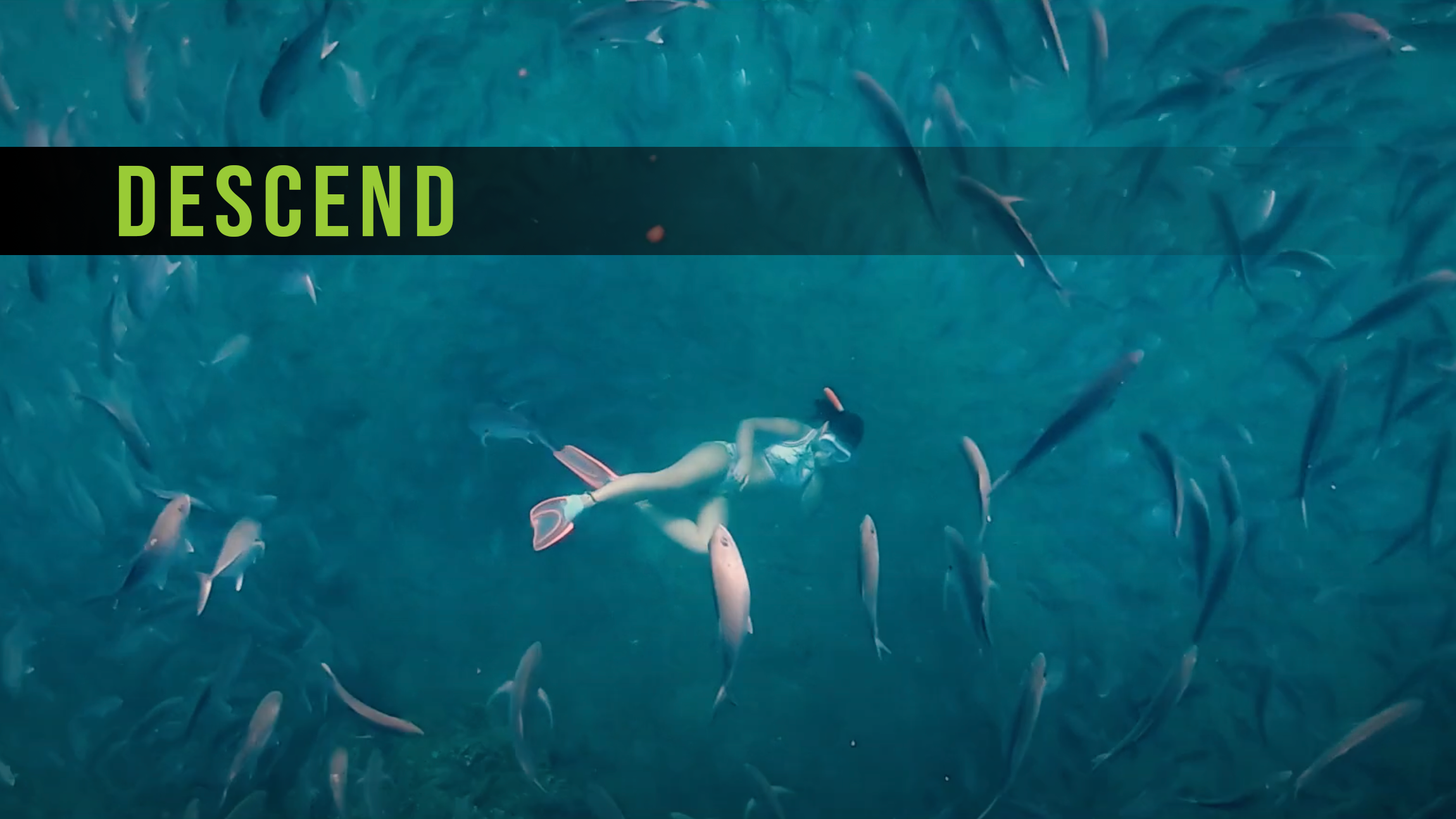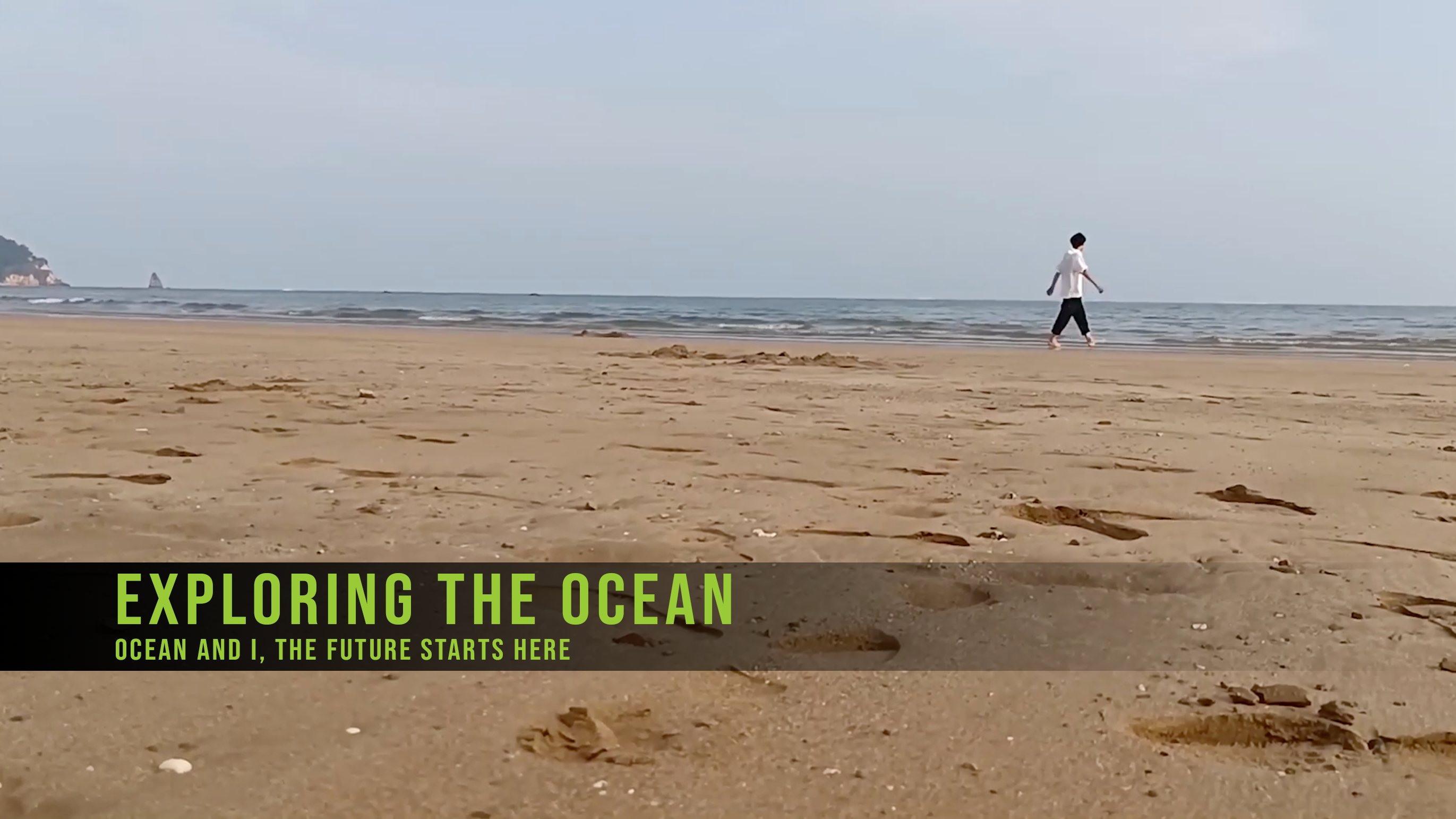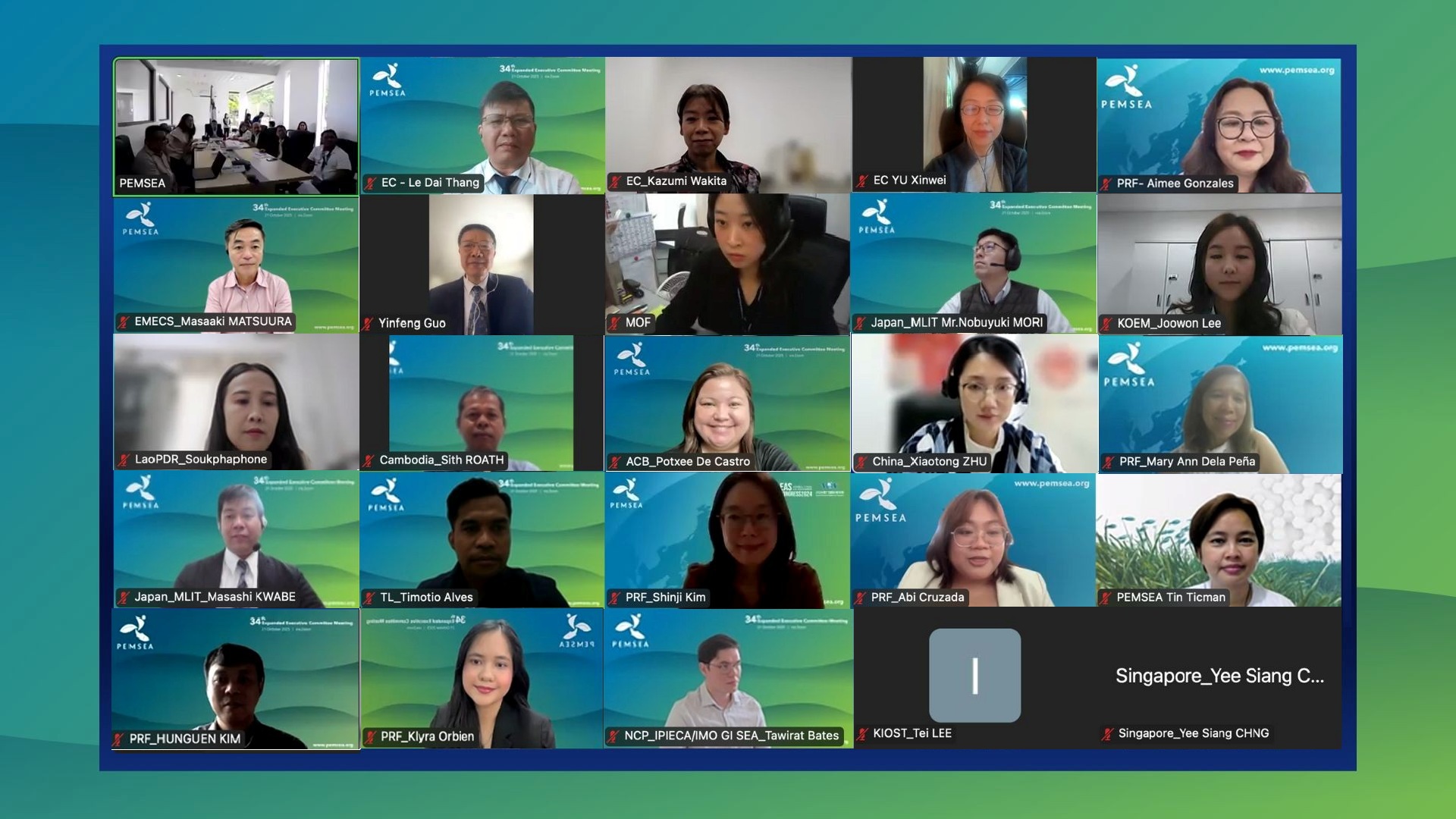EAS Futures: Youth and the Oceans Video Competition Winners
Friday, 29 October 2021

("Chasing Jackfishes" by PEMSEA/Ashley Equi)
The East Asian Seas Youth and the Oceans Video Competition aimed to feature the understanding the youth have of their oceans, and highlight the creativity and firmness with which they can share their knowledge, understanding, plans, and dreams. Through the videos they submitted, we were given a glimpse into the best practices and local marine actions of youth, as well as the local issues and challenges they have experienced and witnessed.
The participants of the video competition showcased the part they play in achieving sustainability throughout East Asia’s coasts and oceans as it is particularly crucial for the region’s youth, who will not only benefit from sustainability, but ensure it is carried on into the future.
PEMSEA would like to thank everyone who participated in the EAS Youth and the Oceans Video Competition and congratulate the winners. Their meaningful videos gave us the opportunity to experience the life surrounding the oceans without having to leave the comfort of our homes.
First Place: Descend
By Ian Sylbert Chavez; Arsen Carl M. Vargas; Andrew S. Pasaporte; Tisha Mae P. Haro

It is known that we are in the midst of a universal crisis. It’s crucial for humanity to embrace a more sustainable way of life where we take care of ourselves, our mental health, of others, and of our environment as we promote ecotourism which involves educating and sustaining the well-being of the locals. Not only does it improve our physical health, freediving is also by essence an activity where we connect intimately with nature which enhances our emotional well-being and alleviates feelings of social isolation. Moreover, our main goal is to prepare the new generation of marine conservationists by sowing knowledge that inspires them to protect our thriving ocean life. These willing young individuals, who have a high potential to be future freediving instructors, will be adopted from a particular community with close access to marine ecosystems (minimum of 2 students within 5 marine protected areas). Their genuine willingness will be assured with the help of their respective local government units by submitting their individual application letters. Professional freediving instructor and marine conservationist will be in charge of instilling the proper diving ethics, critical information about marine life, and ways that the gathered local youths can help conserve marine biodiversity within a 3-day session. After their exposure, the participants will also be required to post a photo of their choice during their sessions with a caption of their testimony and brief knowledge about marine life in a way that they can attract tourists. The reason for this idea is so that we can focus on the primary individuals who are expected to pass on their learnings while having this good opportunity to train people in this situation for them to be prepared after the pandemic.
Watch the video here.
Second Place: Dory’s Adventure
By Amira Azman; Nur Saidatul Dursina Binti Jaafar; Nur Afiqah Dharwisyah Binti Mohd Amin David; Lim Pey Chen; Nurul Afifah Binti Mohd Ridzuan; Aina Syafiqah Binti Azmeerizal

The theme for the video that we chose is Responsible and Sustainable Tourism. The making of the video was filmed at Pulau Kapas, Terengganu, Malaysia. The main take-away message that we want the audience to understand is that to sustain the ocean, sustainability and eco-tourism must be practiced and implemented at every available tourism spot. In this video, we emphasize on our responsibilities as tourists and the key points that we want to deliver through the video are the etiquette in marine tourism, saving and conserving energy while traveling, and avoiding the usage of single plastic during traveling periods. The etiquette in marine tourism simply implies the dos and don’ts when traveling to islands, beaches, or any marine-associated tourism spot. We focus on the commonly done activities in the tourism sector but people are unaware of the detrimental effects of these activities on the environment. Moreover, the importance and significance of saving and conserving energy to reduce our carbon footprint whenever we travel contributes to the effort to reduce the impact of climate change. Last but not least is a message to avoid the usage of single used plastics such as plastic water bottles and cups whenever traveling. This is to reduce the possibility of plastic littering in the ocean.
Watch the video here.
Third Place: Exploring the Ocean--Ocean and I, the Future Starts Here
By Sun Qishun; Zhang Jianing; Hong Gengqi; Fan Dongyang; Gao Yifei

This video tells the story of a current university student who is just entering the field of research. He is Sun Qishun, from Ocean University of China. His major is marine science and he is motivated to become a scientist. The film 'The Day After Tomorrow' inspired his research and he set out to find a way to study paleoclimate from the ocean. He found a teacher in his school who was doing related research and started his research journey. It is well recognized that scientific research is not always easy, it requires learning more specialised knowledge, repeated experiments and constant discussions. Under the pressure of both his studies and his research, he continues to pursue his ambition to interpret paleoclimate and paleoceanographic information from marine sediments. He is currently working on a paleoclimate and paleoceanic study of a core in the northwestern South China Sea, which is expected to yield some results in the evolution of the East Asian monsoon. The ocean is like a history book, containing many stories of the Earth's past, and all we have to do is to read it. In a time of unusual weather events caused by climate warming, it is important to reflect on our human impact on the climate and to understand the future direction of the climate, which needs to be supported by more paleoclimate information for prediction. The climate record of the East Asian Seas will help us to understand how the climate of East Asia has evolved.
Watch the video here.




